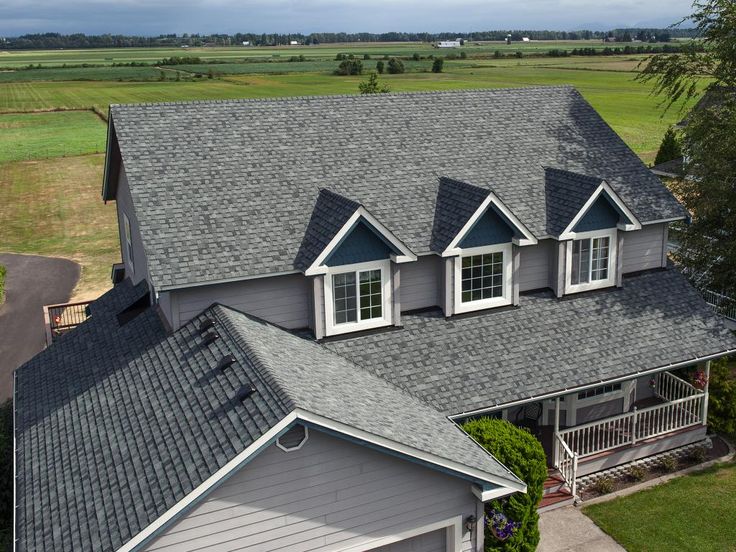Selecting the right contractor for shingle roofing installation is crucial to ensuring the durability, safety, and quality of your roof. With so many contractors available, making the best decision can be overwhelming. In this guide, we will walk you through the steps of choosing the right contractor for your shingle roofing installation project. By following these guidelines, you can confidently select a professional who will deliver exceptional results.
1. Research and Gather Recommendations
Before making a decision, take time to research local roofing contractors. Start by asking friends, family, or neighbors who have had similar work done. Their personal experiences can help you find reputable contractors. You can also look for online reviews and ratings on trusted websites like Google, Yelp, or the Better Business Bureau (BBB).
It’s essential to gather a list of contractors in your area so that you can compare their services, pricing, and reputation. Take note of any contractors who have a solid track record of successful shingle roof installations and who have received positive feedback from previous clients.
2. Verify Credentials and Licensing
One of the most important factors in choosing a contractor is verifying their credentials. Ensure that the contractor is fully licensed and insured. A valid license ensures that the contractor is qualified to perform roofing work in your area and is knowledgeable about local building codes and regulations. Insurance is equally important because it protects you from liability in case of accidents or damage during the project.
Ask to see proof of their license and insurance. A trustworthy contractor will have no problem providing this information. Without proper licensing and insurance, you could be held responsible for any injuries or damages that occur during the installation process.
3. Check Experience and Specialization
Shingle roofing installation requires specific skills and expertise. It’s essential to hire a contractor who has experience working with shingle roofs, as this ensures they are familiar with the installation process, potential challenges, and how to avoid common mistakes. Ask the contractor how long they’ve been in business and what types of roofing projects they have handled in the past.
If you are looking for a specific type of shingle, such as asphalt, wood, or metal, ensure that the contractor has experience working with those materials. A specialized contractor will know the nuances of each material and can ensure a higher quality installation.
4. Ask for a Portfolio of Previous Work
A reliable contractor should be able to provide examples of previous shingle roofing installations. Ask for a portfolio or pictures of completed projects. This will give you a sense of their work quality and help you assess whether their style and standards match your expectations.
If possible, request to visit a recent installation site. Seeing a completed project in person will allow you to inspect the quality of the workmanship. Additionally, it will give you an opportunity to speak with the homeowner about their experience with the contractor.
5. Obtain Multiple Quotes
Don’t settle for the first estimate you receive. It’s always wise to get quotes from at least three contractors to compare pricing and services. Be wary of quotes that are significantly higher or lower than others, as these could indicate hidden costs or subpar work.
When requesting quotes, make sure they are detailed and include the cost of materials, labor, and any additional fees. This way, you can assess the value of the services being offered and avoid surprises later in the process.
6. Ask About Warranties and Guarantees
A reputable roofing contractor will offer warranties on both materials and workmanship. A warranty provides you with peace of mind, knowing that if any issues arise after installation, you can rely on the contractor to address them.
Be sure to ask about the specifics of the warranty, such as its duration and what it covers. Some warranties may cover only material defects, while others may include labor costs as well. Always read the fine print to ensure that you are protected in case of future problems.
7. Review Contract Terms
Before signing a contract, take the time to thoroughly review the terms and conditions. Ensure that everything you discussed with the contractor, including pricing, project scope, timelines, and warranties, is included in the contract.
A well-written contract protects both parties and ensures that the work will be completed as agreed. If you’re unsure about any of the terms or conditions, don’t hesitate to ask for clarification. Never sign a contract until you fully understand the terms.
8. Communication and Customer Service
Effective communication is vital for a successful roofing project. The contractor you choose should be responsive to your inquiries, address your concerns, and be transparent throughout the entire process. During your interactions, pay attention to how well they listen and whether they provide clear, concise answers.
A contractor who values customer service will keep you updated on the project’s progress and be available to address any issues that arise. If a contractor is hard to reach or seems unprofessional during initial communications, it could be a red flag.
9. Evaluate the Safety Standards
Roofing installation can be a dangerous job, so it’s essential that the contractor follows proper safety standards. Ask the contractor about the safety measures they implement to protect their workers and your property during the installation.
A reputable contractor will follow OSHA (Occupational Safety and Health Administration) guidelines and use safety equipment such as harnesses, scaffolding, and fall protection to prevent accidents. They should also have a safety plan in place for any unforeseen circumstances.
10. Look for Professionalism
The professionalism of the contractor can tell you a lot about their approach to work. From their appearance to their demeanor, a professional contractor will exude confidence and competence. They should arrive on time for meetings, present themselves in a respectful manner, and be organized in their approach to the project.
A professional contractor will also have a well-maintained business presence, including a legitimate business address, phone number, and website. This demonstrates that they are established and take their business seriously.
Conclusion
Choosing the right contractor for shingle roofing installation is crucial for ensuring a high-quality, durable roof. By following the tips outlined in this guide, such as researching contractors, checking credentials, and asking about warranties, you can make an informed decision. Always take the time to compare contractors and ask questions to ensure that you select a reputable professional who will complete the job correctly and on time. With the right contractor, your new shingle roof will provide long-lasting protection for your home.
FAQs
1. How do I know if a roofing contractor is reliable?
Look for signs such as proper licensing, insurance, a good reputation, and a proven track record of successful shingle roofing installations. Online reviews and recommendations from trusted sources can also help.
2. What should be included in the roofing installation contract?
The contract should detail the scope of work, timeline, materials, costs, payment schedule, warranty information, and any additional terms. Make sure it’s clear and comprehensive.
3. How much should shingle roof installation cost?
The cost of shingle roof installation varies depending on the size of the roof, the type of shingles, and the complexity of the installation. On average, you can expect to pay between $5,000 and $10,000, but the final cost will depend on your specific project.
4. How long does a shingle roof installation take?
Most shingle roof installations take anywhere from one to three days, depending on the size and complexity of the project. The contractor should provide an estimated timeline when they assess your roof.
5. What kind of warranty should I expect?
A good contractor will offer a warranty for both the materials and the labor. Material warranties typically last 20 to 30 years, while labor warranties may last 1 to 5 years, depending on the contractor.

